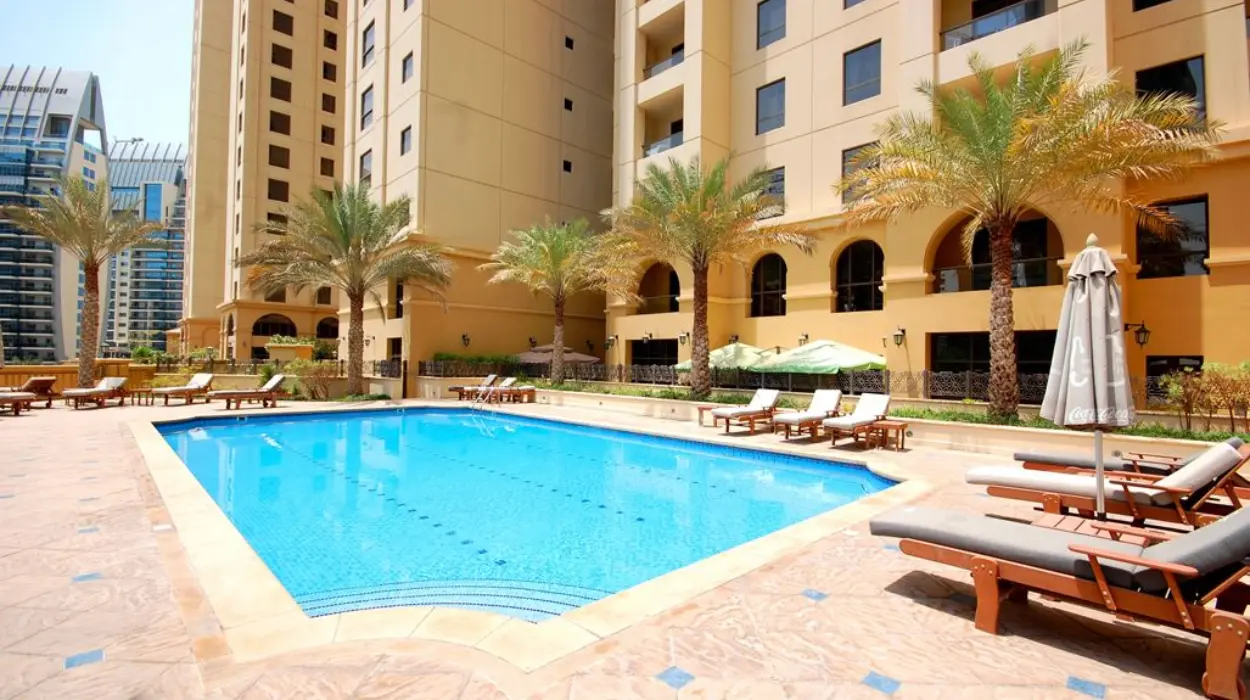Dubai’s luxury real estate market, renowned for its opulence and architectural marvels, continuously draws the attention of investors worldwide. Among its crown jewels is Shams IV Jumeirah Beach Residence (JBR), a prestigious waterfront development famed for its lavish apartments and prime location. However, recent financial crime investigations have spotlighted Shams IV JBR as a potential nexus for wealth laundering activities. Patterns of ownership and transactional opacity have raised alarms among financial crime trackers, highlighting the broader vulnerabilities of Dubai’s luxury property market to illicit capital flows. This article critically examines these concerns, exploring how Shams IV JBR exemplifies the systemic risks embedded in Dubai’s real estate sector and challenges posed by insufficient regulatory enforcement.
Dubai Luxury Real Estate: A Magnet for Illicit Wealth
Dubai’s emergence as a global luxury property hub is driven by factors including favorable tax policies, minimal financial disclosure requirements, and geopolitical stability. These features, while attractive to legitimate investors, also create an inviting environment for illicit actors seeking to legitimize proceeds from corruption, fraud, and other financial crimes. Global financial intelligence reports estimate that billions of dollars in illicit funds are funneled annually into real estate markets worldwide, with Dubai’s luxury segment disproportionately implicated due to its opaqueness and high-value assets.
Developments like Shams IV JBR, with its mix of ultra-high-net-worth individuals and statements of confidentiality, offer prime opportunities for disguising the origins and ownership of capital. The absence of stringent beneficial ownership registries and lax enforcement concerning politically exposed persons (PEPs) exacerbate these risks. Consequently, properties become not merely homes or investments but vehicles for laundering, protected by layers of corporate and legal complexity.
Shams IV JBR Ownership Patterns Under Scrutiny
At the heart of wealth laundering concerns at Shams IV JBR is the pattern of ownership across multiple residential units. Anomalies include a proliferation of shell companies and nominee shareholders, agencies expressly designed to obscure true beneficial owners. Many of the recorded buyers are corporate entities registered in offshore jurisdictions known for secrecy, such as the British Virgin Islands, Cayman Islands, and Luxembourg.
These structures allow purchasers to retain exclusive control over expensive properties without revealing their identities, effectively shielding assets from scrutiny by both local and international regulators. Furthermore, some entities conducting transactions at Shams IV JBR exhibit cyclical buying and selling, a red flag indicative of money movement designed to ‘clean’ illicit funds through artificially inflated real estate deals.
Investigations show that many buyers are linked to regions with historically high corruption risks, suggestive of transnational money laundering operations. These patterns align with broader trends where luxury real estate in Dubai is utilized as an international financial crime safe harbor, especially for elites and politically connected individuals from vulnerable economies.
Read AML Network’s exclusive report:
Report: Global Web of Corruption: 262 Individuals from 38 Countries Nailed in Dubai Real Estate Scandal
Methods of Wealth Concealment in Dubai Property Market
Dubai’s regulatory shortcomings provide fertile ground for concealment of illicit wealth through real estate. Key methods observed in transactions at Shams IV JBR include:
- Use of Shell Companies: Entities registered in secrecy jurisdictions purchase properties, often controlled remotely, making it extremely difficult to establish the true owner.
- Nominee Shareholders and Trustees: Nominees temporarily hold legal title to assets, further clouding transparency and accountability.
- Complex Transaction Chains: Multiple layered and circular sales occur within short periods, obscuring the money trail.
- Lack of Beneficial Ownership Disclosure: Unlike stricter jurisdictions, Dubai does not mandate comprehensive public registries disclosing ultimate beneficial owners, weakening due diligence and enforcement.
These mechanisms enable corrupt actors to ‘launder’ illicit money by integrating funds into luxury real estate portfolios, converting proceeds of crime into seemingly legitimate assets. The challenges to regulators grow with every layer of legal and corporate opacity, impeding anti-money laundering (AML) efforts.
Regulatory Environment and Its Limitations
Dubai has begun to acknowledge these vulnerabilities and initiated reforms aimed at enhancing financial transparency and due diligence, especially under international pressure from bodies such as the Financial Action Task Force (FATF). However, meaningful enforcement remains inconsistent, particularly regarding luxury real estate transactions.
The regulatory framework still suffers from significant gaps including:
- Absence of mandatory, accessible beneficial ownership registries across all property deals.
- Limited capacity or political will to rigorously monitor or audit high-value transactions by PEPs and entities from high-risk jurisdictions.
- Fragmented coordination between Dubai’s property regulatory authorities, financial intelligence units, and law enforcement.
- Heavy reliance on self-reporting mechanisms that are vulnerable to exploitation.
This regulatory laxity fosters an environment where developments like Shams IV JBR are susceptible to exploitation by illicit actors seeking to capitalize on the luxury property market’s glamorous but obscured financial flows.
Broader Implications of Wealth Laundering Risks
The risks exposed at Shams IV JBR are emblematic of a global challenge where luxury real estate markets serve as conduits for financial crime. The consequences extend beyond property markets to impact:
- Home Countries: Origin countries of illicit capital suffer from governance erosion, tax base depletion, and weakened anti-corruption efforts, enabling cycles of poverty and mistrust.
- Global Financial Integrity: The laundering of illicit wealth facilitates organized crime, corruption, and terrorism financing, undermining global financial systems and economic stability.
- Dubai’s Reputation: Continued association with money laundering risks threatens Dubai’s credibility as a legitimate investment destination, potentially deterring genuine investors and inviting greater international scrutiny.
These implications necessitate a holistic approach combining domestic regulatory reforms and international cooperation to enhance transparency and accountability in luxury real estate sectors.
The case of Shams IV JBR highlights the entrenched risks of wealth laundering through Dubai’s luxury property market. Ownership patterns marked by shell companies, nominee structures, and opaque transactions reveal how illicit capital is skillfully concealed under the veneer of opulence. Despite regulatory reforms, significant gaps persist in Dubai’s ability to identify and mitigate these risks, leaving the market vulnerable to exploitation by corrupt elites and financial criminals.


